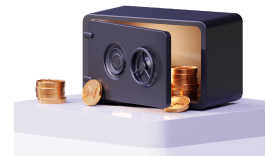Market sentiment fades, but the US Dollar drops
The market remains uncertain, as optimism over lower rates clashes with concerns over trade and political instability. Recently, Trump hinted at more tariffs on Japan, while pushing for trade deals with Canada and the UK. He also suggested that the "Big Beautiful Bill" could pass soon, which raised concerns about the growing deficit despite expectations for economic growth.
A letter from Trump to Fed Chair Powell, urging rate cuts and proposing a new nominee to replace Powell, sparked fears about the independence of the US central bank. This, combined with mixed US data, trade uncertainty, and a more dovish Fed, led to a significant drop in the US Dollar. In fact, the US Dollar Index (DXY) posted its worst first half in 50 years in 2025.
In Europe, ECB officials were cautious about further rate cuts, and Germany saw softer inflation and retail sales growth. EURUSD surged to its highest level since September 2021.
Japan's policymakers reassured markets that they could handle US tariffs, and the Tankan report showed strong results, supporting a more hawkish stance by the Bank of Japan. Meanwhile, China's Caixin Manufacturing PMI surprised with better-than-expected growth. USDJPY dropped to a two-week low after a weak monthly and quarterly performance.
In the UK, disappointing data was overshadowed by the weaker US Dollar, allowing GBPUSD to rise to its highest point since October 2021. Similarly, USDCHF gained on the weaker USD, and USDCAD fell to a two-week low despite weak oil prices, supported by the Bank of Canada’s hawkish stance and improving trade relations with the US.
AUDUSD and NZDUSD reached their highest levels since late 2024, while Gold continued its rebound from key support levels. Bitcoin and Ethereum saw mild losses, while markets in the Asia-Pacific region rose following a positive close on Wall Street and lower yields.
EURUSD ignores cautious ECB talks to refresh multi-month high
EURUSD hit its highest level since late 2021, shrugging off ECB policymakers’ worries about inflation and growth. The move is likely driven by speculation that the ECB may pause rate cuts after 10 straight reductions, and optimism over a potential US-EU trade deal, despite ongoing negotiations.
Weak German inflation and slowing retail sales didn’t faze EURUSD bulls, especially as the US Dollar continues to weaken. The pair also finds support from the ongoing ECB Sintra forum, where top central bankers—including those from the BoJ, BoE, and Fed—are set to speak. ECB President Lagarde’s slightly upbeat tone adds to the euro’s strength.
GBPUSD hits 44-month high, USDJPY drops to fortnight low
GBPUSD remains firm at its highest level since October 2021, supported by a weaker US Dollar and a strong technical breakout. The British Pound also gains strength from the finalized US-UK trade deal and upbeat comments from Bank of England officials, despite concerns over a softening labor market. Adding to the positive tone, the UK’s BRC Shop Price Index for June and May mortgage approvals both improved, while Q1 GDP confirmed the earlier estimate of 0.7%.
Meanwhile, USDJPY stays under pressure near a two-week low, as Japan’s Economy Minister Akazawa, Farm Minister Koizumi, and Chief Cabinet Secretary Hayashi signaled readiness to push back if the US imposes agricultural tariffs, fears that emerged after Japan raised concerns over US auto tariffs. A BoJ official struck a cautious tone, though the BoJ Tankan survey reflected a mostly positive outlook. Japan’s June manufacturing PMI slightly eased from earlier estimates. Still, the combination of a soft US Dollar and hawkish expectations for the BoJ continues to weigh on USDJPY after its second consecutive quarterly and six-month decline.
Antipodeans edge higher
A broadly weaker US Dollar, upbeat Chinese Caixin Manufacturing PMI, and hopes for trade deals lifted the Australian, New Zealand, and Canadian Dollars. AUDUSD holds near its highest level since November 2024, despite a slightly softer final June Manufacturing PMI of 50.6 (vs. 51.0 prior). NZDUSD climbs to the highest since October 2024 after stronger-than-expected New Zealand building permits.
USDCAD falls to a two-week low, even with weaker crude oil—Canada’s key export—pressuring the pair. The drop follows Ottawa’s decision to roll back extra taxes on US tech firms, boosting hopes for a US-Canada trade deal. Additionally, growing expectations that the Bank of Canada may pause its rate-cut cycle due to inflation and growth concerns also weigh on USDCAD.
Crude Oil remains pressured, and Gold recovers
WTI crude oil remains under pressure at a one-week low, extending a three-day losing streak after its biggest weekly drop since April 2020. Despite a softer US Dollar and renewed Iran sanctions from Trump, oil prices fail to rebound as demand concerns persist and supply expectations rise, especially with OPEC+ production growth and the ongoing “Drill Baby Drill” push. Even a steady decline in US oil inventories hasn't been enough to support prices.
Gold bounces off a 5.5-month-old trendline support, helped by a weaker US Dollar and cautious market sentiment ahead of key central bank speeches today. Worries over Trump’s proposed “big beautiful bill,” along with ongoing geopolitical and trade tensions, also support gold, allowing it to recover some monthly losses early Tuesday.
Cryptocurrencies struggle to cheer softer US Dollar amid mixed markets
Bitcoin (BTCUSD) and Ethereum (ETHUSD) start the week lower after a strong weekly close, as traders await fresh cues to sustain recent optimism with prices nearing key resistance levels. A cautious market mood and weakening retail interest are weighing on sentiment, causing cryptos to struggle despite continued strong buying from whales and institutions.
Latest moves of key assets
- WTI crude oil remains under pressure around $64.90, after posting the biggest weekly loss since April 2020.
- Gold recovers to $3,330 after a two-week downtrend, bouncing off the key support.
- The USD prints a nine-day losing streak as bears attack the early 2022 levels near 96.60.
- Wall Street benchmarks closed positively, and the stock futures are slightly up too, while the Asia-Pacific stocks edged higher. However, European and British equities post mild losses during the initial trading hours.
- Bitcoin and Ethereum both post mild losses, down for the second consecutive day, near $107,000 and $2,460 at the latest, paring the biggest weekly gain in eight.
All eyes are on central bankers and the US Senate…
Looking ahead, top central bankers from the Fed, ECB, BoE, and BoJ will speak at the ECB’s Sintra forum, drawing attention as recent developments challenge previous policy stances. The Fed’s current neutral stance may come under pressure from both economic data and Trump’s influence, while the BoE, ECB, and BoJ could sound more optimistic, potentially supporting their currencies.
Fed Chair Powell’s resistance to political pressure and his “wait and see” stance may help the US Dollar recover some losses, triggering a pullback in major currencies and commodities. EURUSD will be closely watched, especially if the ECB signals a pause in rate cuts—possibly clashing with US-EU trade deal concerns and testing euro strength if the dollar rebounds.
Meanwhile, Gold, the Japanese Yen, and the Swiss Franc may retain gains due to safe-haven demand. Cryptocurrencies risk further downside unless market sentiment improves. Equities may continue testing record highs, while yields could drift lower unless reignited by trade or political tensions. Attention also turns to the expected approval of Trump’s spending bill, which could temporarily weigh on the USD due to deficit concerns, before potentially rebounding on upbeat messaging and growth hopes ahead of Friday’s US jobs report.
Predictions for top-tier assets
- Bullish Move Expected: USDCAD, Gold, USDJPY
- Further Downside Likely: USDCHF
- Sideways Movement Anticipated: Nasdaq, DJI30, USDCNH, AUDUSD, NZDUSD, GBPUSD, US Dollar, BTCUSD, ETHUSD, Crude Oil
- Slow & Gradual Fall Eyed: DAX, FTSE 100, EURUSD
May the trading luck be with you!




